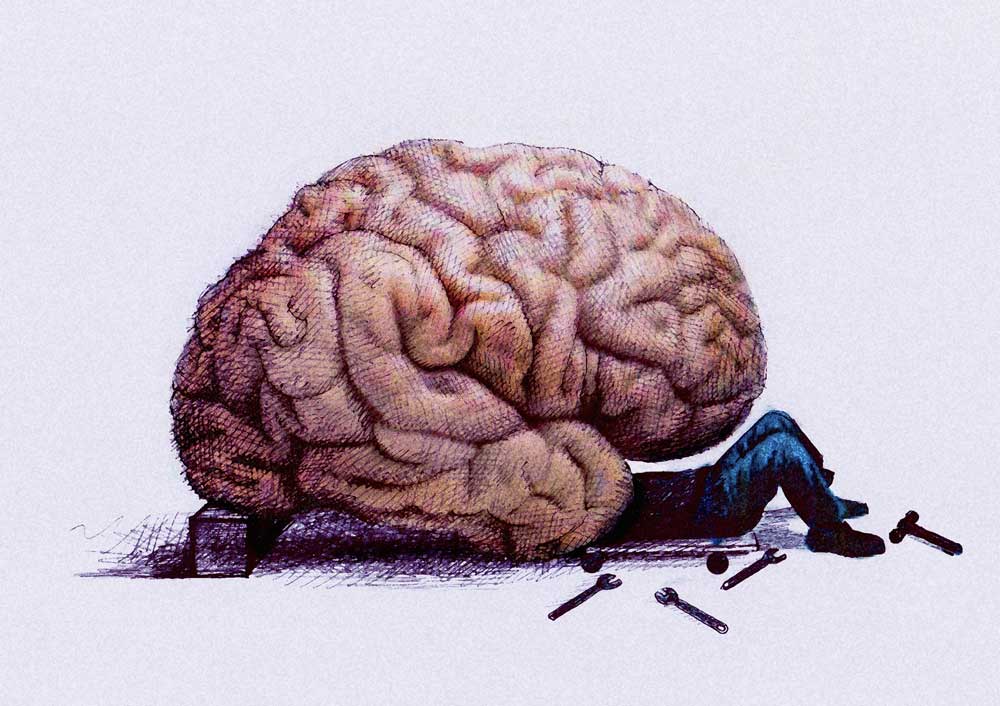Interview with Prof. Bruce S. McEwen
With the world becoming noisier and more interconnected, it seems like stress levels are on the rise. It is therefore necessary that we better understand the causes and ramifications of stress, which is not only detrimental to our health, but also impacts work performance, personal relationships, and even the state of our brains. Fortunately, we are endowed with capacity for resilience and positive change.
Prof. Bruce S. McEwen, head of the Harold and Margaret Milliken Hatch Laboratory of Neuroendocrinology at Rockefeller University, is an expert in the impact of stress hormones on the brain. He has published more than 700 peer-reviewed articles, won multiple awards, and is the co-author of “The End of Stress As We Know It”, and “The Hostage Brain”. Tharawat spoke to Prof. McEwen about the meaning of stress, its effects on the human brain, and possible coping mechanisms.
What is stress exactly? How is it defined?
We tend to use the term “stress” arbitrarily. At the Harvard based National Scientific Council of the Developing Child, where we focus on urban life adversity, we have collectively come up with three different types of stress.
“Good stress” is when you are faced with a challenge, like an important meeting or giving a speech. These situations generally present a risk. If you have good self-esteem and a strong sense of self you remain in control. When the outcome is successful, you feel elated and reinforced because you have risen to meet the challenge.
The second type of stress is what we call “tolerable stress”, usually associated with circumstances that are painful or have an element of the unexpected, such as the death of a family member or divorce. Such events can be traumatic. When a person has good self-esteem and good social and material resources, these are storms that can be weathered. Of course when there has been adversity early on in life, such as abuse or the loss of a parent, what is tolerable to some, can be unbearable to others.
This brings us to the third type, “toxic stress”, which occurs when the person lacks self esteem and/or adequate social and material resources to cope, provoking a downward spiral in which one may eat, smoke or drink too much, become depressed, or otherwise unable to function.
What causes stress and how can it be detected?
There are obvious stressors that we all know of, the subtle things that happen to us every day like conflict at home, large workloads, long daily commutes, and sleep deprivation, to name a few. A lot of the time, we see such symptoms in families with financial worries. For many, including children, it is obsession with social media. Another frequently underestimated stressor is the everyday violence and unhappiness we witness around us. Pollution and a noisy environment can also seriously heighten stress levels.

Stressors can cause physiological changes. To know whether you are stressed out or not, you must look at the broader picture. Take an honest inventory of how you are doing. Are you physically active? Are you sleeping well? Do you interact with friends? If you are not sleeping well and aren’t eating well, or drinking too much, then chances are you may suffer from a system overload and are stressed out for one reason or another.
[ms-protect-content id=”4069, 4129″]
Speaking of physiological changes, how does stress affect our brains?
The brain is the central organ of stress and adaptation to stress because it controls interconnected physiological systems, like the conductor of an orchestra, and responds to feedback from them, “the musicians”. But when one system is imbalanced, the other systems are likely to become imbalanced and there is dissonance.
We know that the brain and body are connected by the neuroendocrine axis. Stress triggers signals that come out of the brain via the pituitary glands, leading to the production of cortisol, the stress hormone. The amygdala, part of the brain’s limbic system that controls basic emotions and drives, helps us register whether stimuli are positive or negative. Stress hormones are secreted in response. In turn, our nervous systems regulate our fight or flight reactions and our health-related behaviours, both good and bad. All these neural pathways affect both our immune systems and brains.
In fact, the architecture of our brain is changed by positive and negative experiences. Stress may cause impaired communication in some parts of the brain and over-activity in other brain areas such as the amygdala. My own research has shown that there are cortisol receptors in the hippocampus, the part of the brain involved in memory and mood regulation. The prefrontal cortex, which governs our ability to self-regulate our behaviour, is impaired by chronic stress. After chronic stress, you have a less active hippocampus, an impaired prefrontal cortex and an overactive amygdala, which translates as shortage of memory, ability control impulses and moods, and increased anxiety.
The wear and tear of an overloaded system is called the allostatic load, which can lead to diseases such as arthritis, diabetes, and depression. Studies now show that adverse experiences during childhood are positively correlated to the development of disease and contribute heavily to the health care burden.

On the upside, exercising every day can cause the hippocampus to create new nerve cells, a process called neurogenesis, in which the hippocampus is enlarged and memory and mood improve. Exercise is effective in elderly, as well as young people in increasing neurogenesis, memory, mood and self-regulation. Exercise is a very effective antidepressant.
Experiences regulate expression of our genes that is continually changing the state of the brain. Even with apparent recovery after stress, the brain does not revert back to its previous state – it is always different.
I am part of the Hope for Depression Research Foundation, which recognises that the majority of antidepressants are really only effective in about 30% to 40% of all cases. There is also treatment-resistant depression. It all boils down to finding out how the state of the brain can be altered, and new antidepressants are under investigation.
How can we learn to better cope with stress?
When we recognise that we are experiencing stress, we need a strategy to get out of it, which takes both gumption and energy. This is especially necessary when we are trying to break out of patterns and relationships that have been part of our lives for a long time and may cause a “situational depression”.
Changing this requires developing discipline to be able to put things aside and stop ruminating, a skill that is part of “mindfulness”. Another goal is to create achievable strategies that are not extreme: you don’t have to become a marathon runner – walking is good and sitting at a desk all day is bad. Get adequate sleep and balance eating and drinking. Make sure to be reasonable about the goals you set.
Relationships are also important and immensely beneficial. Are there people around who can help you mitigate stressful situations? Family? Good friends? In general, you have to have or create a positive environment for yourself. Since your brain keeps changing states, it has the ability to overwrite existing information through new experiences.
Tharawat Magazine, Issue 27, 2015
[/ms-protect-content]














